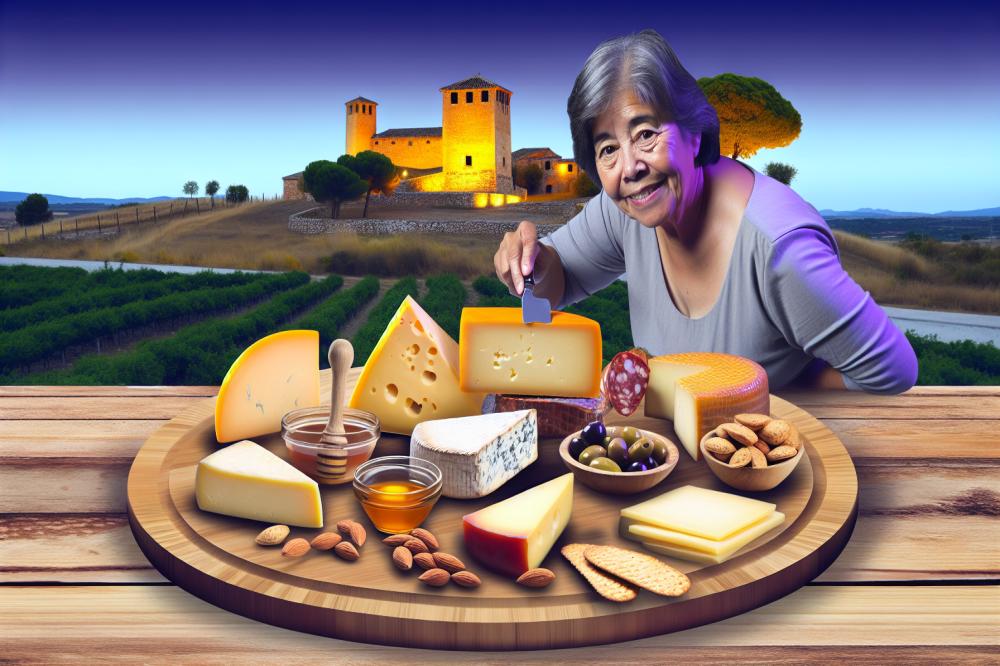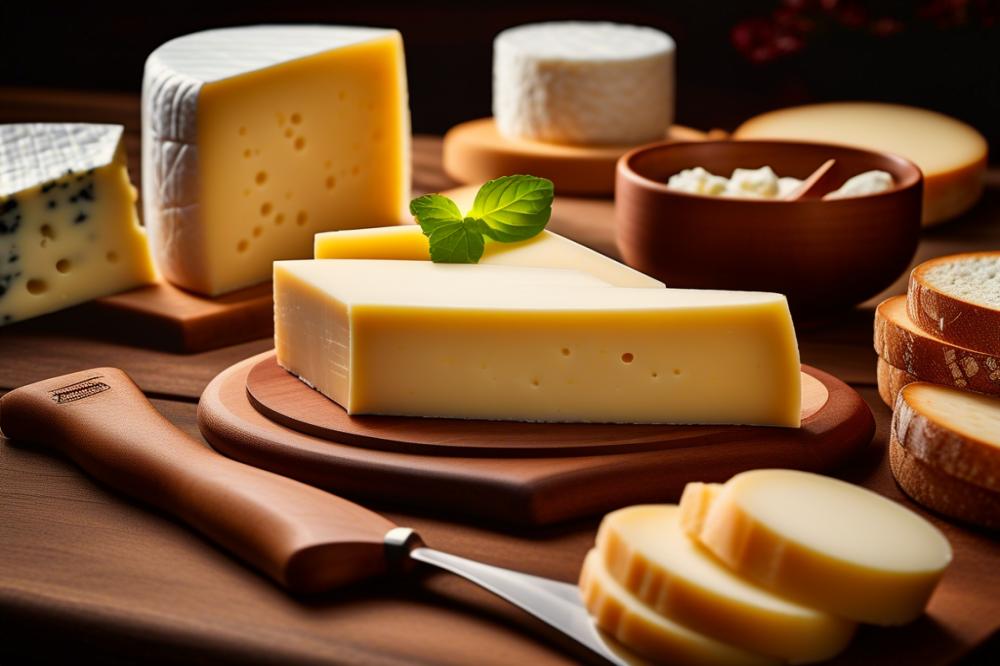Introduction
Spain is famous for its rich variety of cheeses. Each region boasts its own distinct flavors and methods. From the sharp and tangy Manchego to the creamy Queso de Cabrales, the diversity is truly impressive. This range reflects the unique landscapes and cultures found across the country. As you explore these cheeses, you discover how closely they are linked to the local way of life.
family farms play a pivotal role in preserving these time-honored cheese-making techniques. These farms, often passed down through generations, carry the wisdom of traditional practices. Their dedication to quality is evident in every bite. By using local ingredients and methods, they maintain the authentic flavors that have become synonymous with Spanish cheese.
Moreover, the connection between family farms and cheese quality cannot be overstated. Artisanal producers prioritize craftsmanship over mass production. This results in products that are not only delicious but also tell a story. Each cheese is a reflection of the land, the animals, and the people who create it. Authenticity shines through in every wheel and wedge.
In this article, we will also share a traditional cheese recipe that you can try at home. It encapsulates the essence of Spain’s rich cheese heritage, allowing you to experience a bit of its flavor for yourself. Get ready to embark on a culinary journey that celebrates the importance of both family farms and their beloved cheeses.
The Heritage of Spanish cheese
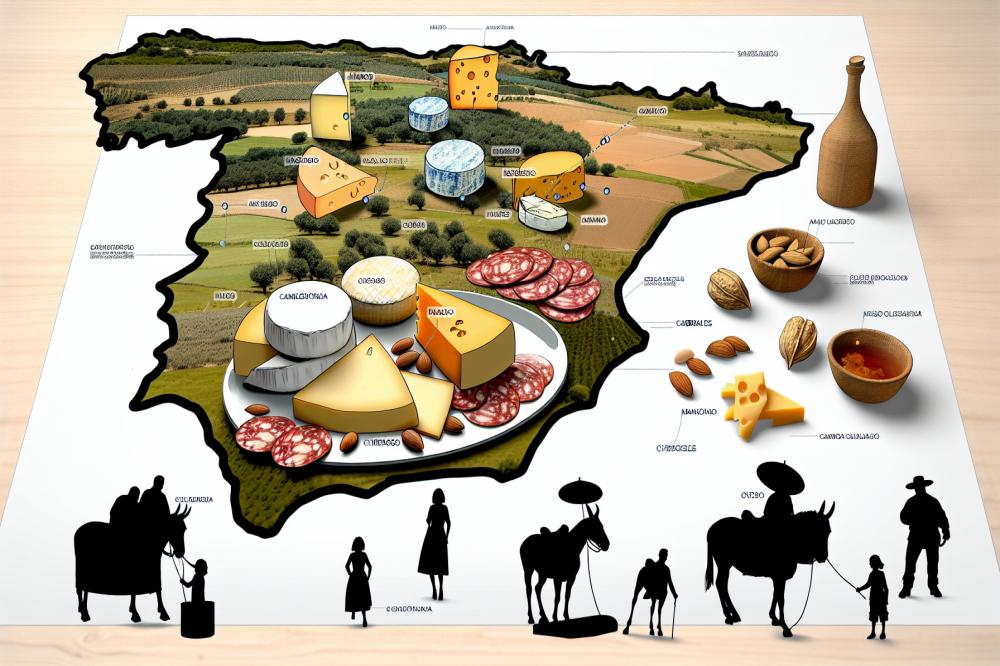
The history of cheese-making in Spain is rich and diverse. For thousands of years, people have crafted cheese using traditional methods. Ancient civilizations in Spain were among the first to cultivate livestock. They made cheese as a valuable source of nutrition. Today, many of these age-old techniques still thrive.
Exploring Various Types
Manchego is perhaps the most well-known cheese from Spain. Originating from the La Mancha region, this cheese is made from sheep’s milk. It boasts a firm texture and a buttery flavor. Cabrales, on the other hand, presents a bold taste. It is a blue cheese made from cow’s, sheep’s, and goat’s milk. Typically, Cabrales is aged in caves, which enhances its distinctive flavor. Mahón cheese from Menorca is another gem in Spain’s cheese repertoire. This cheese stands out with its tangy, and slightly nutty character.
The Richness of Regions
Various regions in Spain contribute to its cheese landscape. The north is famous for its strong and flavorful cheeses. Large amounts of rainfall create lush pastures, perfect for grazing. In contrast, the arid south produces different textures and flavors, influenced by drier conditions. These geographical distinctions play a critical role in the taste of the cheeses.
The Influence of Climate
The climate significantly affects cheese production. For instance, warm temperatures can result in quicker fermentation processes. This leads to milder flavors. In areas with cooler climates, cheeses may develop sharper tastes due to longer aging times. Local flora also impacts the final product. The herbs and plants that animals eat shape the flavor profiles of the cheese. Just imagine how a sheep’s diet of wild thyme can lend an aromatic quality to Manchego.
Fauna is equally important. The types of animals used to produce cheese contribute distinct qualities. Goat’s milk offers tanginess, while cow’s milk can yield creaminess. Through centuries of practice, families have maintained these valuable traditions. Their commitment to preserving the distinct flavors of their regions nurtures the heritage of cheese-making in Spain. Each region tells a story through its cheese, inviting exploration and appreciation.
Family Farms
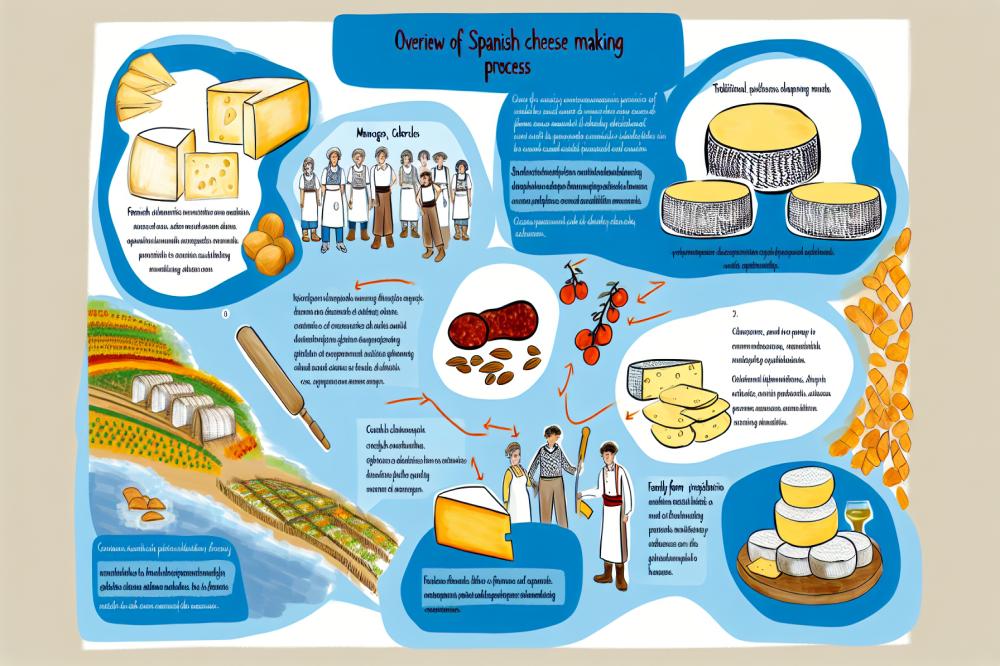
Family farms in Spain play a critical role in the cheese industry. These farms offer a direct link to tradition and culture. They produce a variety of cheeses that reflect local customs and regional tastes. Generations of families have cultivated their land and raised their livestock with care and respect. Each farm is a treasure trove of knowledge passed down through the years.
Many of these farms follow age-old methods of cheesemaking. Techniques used by artisans often date back centuries. The process is careful and requires time, which is something mass production cannot replicate. Local breeds of sheep, goats, and cows contribute to the distinct flavors found in cheeses from different areas. Farmers prioritize the health of their animals, and this attention translates into quality products.
Relationships between consumers and family farms are strong and personal. People appreciate the stories and values behind each product. When they purchase cheese from a family farm, they support a way of life that is deeply rooted in community and tradition. This connection fosters loyalty and encourages the preservation of local practices that would otherwise fade away.
Notable family farms have gained recognition for their exceptional cheeses. For instance, one celebrated farm produces a cheese known for its creamy texture and rich flavor. Another family-run operation offers a pungent cheese that locals rave about. Each cheese reflects the unique terroir of its origin, showcasing the farmers’ hard work and dedication.
Choosing to buy from these farms also promotes biodiversity. Family farms are less likely to rely on industrial methods that prioritize quantity over quality. They take pride in maintaining heritage breeds and traditional practices. This diversity is crucial for the sustainability of Spanish cheese culture. When one supports family farms, they play a role in maintaining a balance within the ecosystem.
Recipe: Traditional Spanish Cheese Board
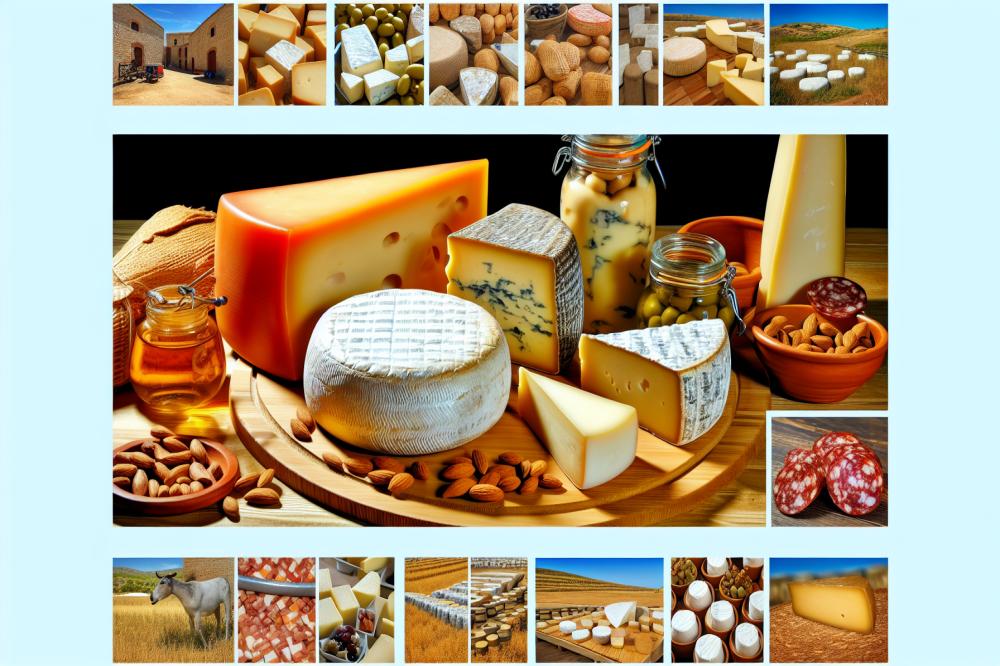
Creating a delightful Spanish cheese board is an excellent way to showcase rich culinary traditions. This platter celebrates flavors valuable to family farms. Gather the following ingredients for a lovely presentation.
Ingredients:
- Assorted Spanish cheeses (Manchego, Cabrales, Mahón)
- Chorizo or Jamón Ibérico
- Olives
- Almonds
- Honey
- Crackers or bread
Instructions:
- Start by arranging the cheeses on a large wooden board. Their diverse textures and colors create visual appeal.
- Slice the chorizo or Jamón Ibérico and place it alongside the cheeses. The richness of the cured meats complements the dairy.
- Add olives and almonds around the cheeses to contribute both color and crunch.
- Drizzle honey over the selections of cheese. This adds a sweet contrast that many enjoy.
- Serve everything with an assortment of crackers or slices of bread for a complete experience.
Nutritional Information:
This board is not only flavorful but also nutritious. Cheese contributes high protein and calcium, essential for strong bones. Nuts provide healthy fats, while olives are rich in antioxidants. Each bite supports a balanced diet.
Health Benefits:
Consuming moderate portions of cheese and nuts can support heart health. These simple delights also deliver vital nutrients. Including a variety of items promotes a well-rounded diet that can enhance well-being.
Final Thoughts on Family Farms and Spanish Cheese Heritage
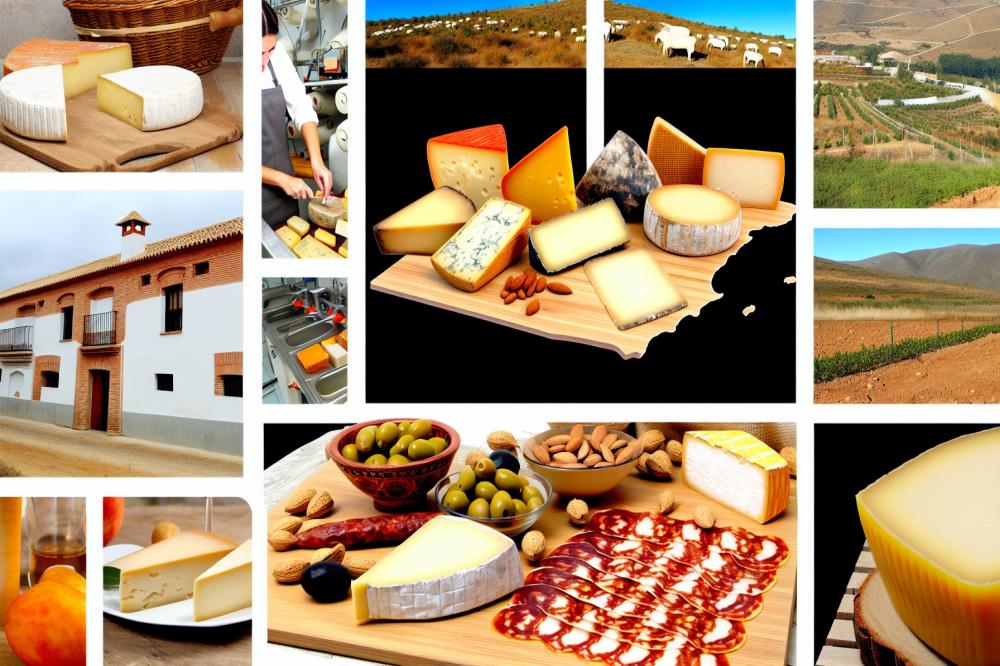
Family farms play a crucial role in preserving the rich tapestry of cheese traditions found in Spain. By maintaining traditional methods and local ingredients, these small-scale operations offer more than just products; they represent a way of life. Many artisans still rely on recipes passed down through generations, crafting artisanal cheese that’s deeply rooted in regional cultures.
Support for family-run farms is essential to the continuation of these practices. As modern agriculture increasingly favors mass production, the unique flavors and techniques associated with handmade cheeses risk being lost. Consumers have the power to influence this landscape. When you choose to purchase from these farms, you’re investing in the survival of a culinary heritage.
Looking ahead, the future of cheesemaking hinges on public awareness and appreciation. With growing interest in sustainable practices, there’s hope that new generations will recognize the value of traditional cheese offerings. Exploring diverse varieties allows individuals to taste not just the product, but also the stories behind each cheese wheel.
We encourage you to seek out local markets or specialized shops that feature these homemade treasures. By supporting family farms, you champion the preservation of a time-honored craft. Every bite contributes to the sustainability of Spain’s artisanal cheese scene and helps ensure that these cherished traditions endure for years to come.

